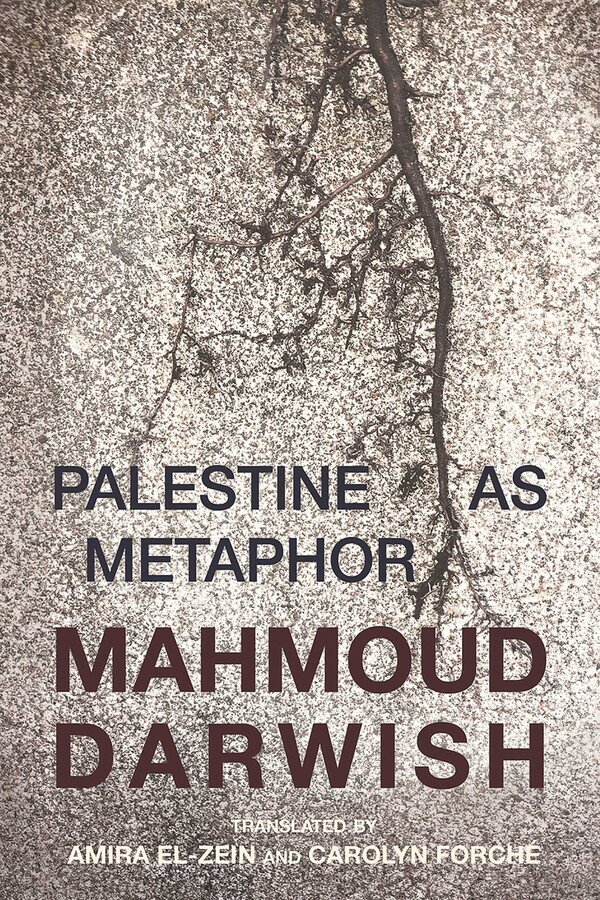
Palestine As Metaphor Mahmoud Darwish
Piney Kesting
Amira El-Zein and Carolyn Forché, trs.
Olive Branch Press, 2019.
“I am convinced that exile is profoundly anchored in me, to the point that I cannot write without it. And I will carry it wherever I go, and I will bring it back to my first home.”
—From Palestine As Metaphor
This collection of five interviews with the late Mahmoud Darwish (1941–2008) opens a door into the heart and soul of Palestine’s most beloved poet. Translated for the first time into English, the interviews date to 1993–1996 and reveal how intimately Darwish’s life is intertwined with that of Palestine. “When he tells his own story,” explains Forché, the compilation’s translator and a poet herself, “he inescapably tells the story of Palestine; destiny has ordained that his personal history would be read as collective, and his people recognize themselves in his voice.” Exile emerges as a dominant theme for Darwish, who explains how it is anchored deeply within him and indispensable to his writing. “I have constructed my own homeland,” notes Darwish. “I have even established my state in my language.” The heart of the book rests in the conceptualization of Palestine as a metaphor —recreated, revived and immortalized through poetry as a declaration of identity.
—Piney Kesting
You may also be interested in...
Celebrate Women's History Month With These Reads on Women Throughout History
To help honor Women’s History Month, AramcoWorld brings you a list of 10 female-focused reads that celebrate women throughout history.
Children’s Book Documents Rise of Umm Kulthum, Egypt’s Star of the East, As Declaration of National Identity
Illustrator Rhonda Roumani presents an illustrative biography of legendary Egyptian singer and cultural icon Umm Kulthum.
Novel Reimagines 1001 Nights With a Feminine Take
Jamila Ahmed takes on classic folktales with a newfound feminine perspective in historical fiction novel.